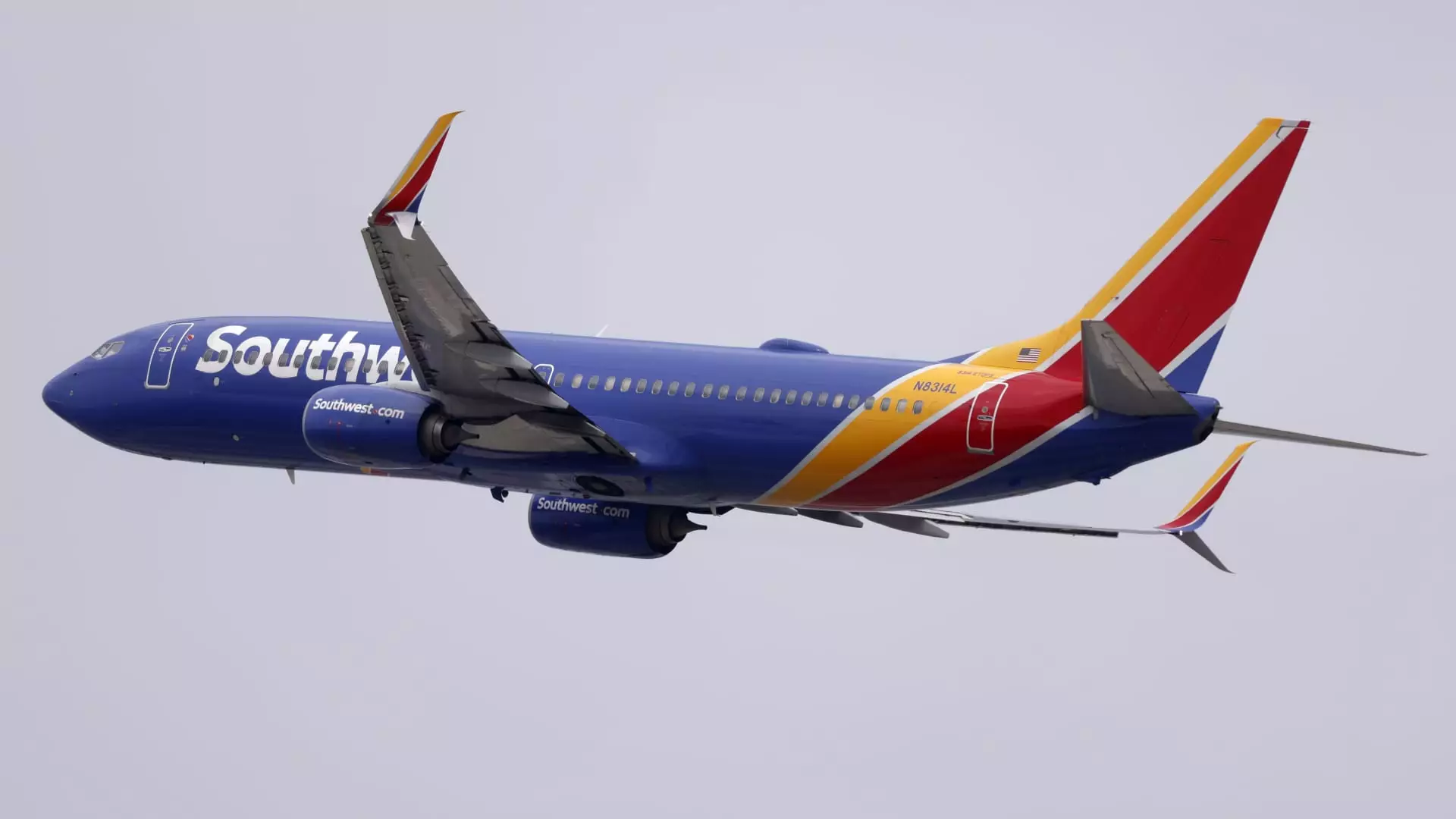The transportation landscape in the United States is undergoing a notable shift, especially with the Biden administration prioritizing consumer protection in air travel. Recent actions taken by the Department of Transportation (DOT) against Southwest Airlines and Frontier Airlines underscore a staunch commitment to holding airlines responsible when they repeatedly fail to meet service expectations. The legal move against Southwest, coupled with fines imposed on Frontier, reveals a toughening stance by regulators that aims to enhance accountability and improve overall passenger experience in the skies.
The DOT’s lawsuit against Southwest Airlines stemmed from a concerning pattern: chronically delayed flights that were significantly disruptive for travelers. Specifically, the lawsuit indicated that certain routes—such as the Chicago Midway to Oakland and Baltimore to Cleveland—suffered delays in nearly 200 instances between April and August 2022. The DOT outlined its criteria for chronic delays, emphasizing that flights must be consistently delayed to warrant such scrutiny. Their definition encapsulates a broader range of flight disruptions that fundamentally thwarts the reliability that passengers have come to expect from air travel.
This scrutiny reflects a departure from the historical leniency shown towards airlines regarding operational deficiencies, indicating that passengers can expect more active intervention from regulatory bodies when their rights and travel schedules are compromised.
In the wake of these allegations, Southwest Airlines expressed disappointment, suggesting that the lawsuit was unwarranted given the context of the incidents—flights that occurred over two years ago. Indeed, the airline pointed to its operational history, claiming no prior violations of the chronic delay policy since its inception back in 2009. This assertion might seem valid at first glance, but it raises a question about consistency in service quality and the extent to which airlines are monitoring and adapting their operations to real-time data.
While Southwest’s defense highlights its overall operational success, the crux of this situation lies in whether airlines are genuinely prioritizing the customer experience over operational efficiencies. If an airline can demonstrate a successful track record yet still allow specific routes to falter repeatedly, it brings into question the importance placed on individualized flight performance.
Implications of Accountability
The DOT’s actions serve as a stern reminder that airlines must establish more robust performance metrics while adapting their schedules in response to chronic delay patterns. With the fines against Frontier Airlines providing an additional layer of enforcement, it’s evident that the government is not merely aiming to penalize but also to encourage proactive measures from all airlines operating in the U.S.
This heightened enforcement is not just about honoring the travel schedules of consumers; it’s also about fostering a culture of accountability within the airline industry. As air travel gradually returns to pre-pandemic levels, the expectation is clear: airlines must prioritize reliability and transparency or face the consequences of administrative actions designed to protect the traveling public.
Overall, the challenging climate faced by airlines is indicative of broader industry changes, suggesting that passenger advocacy will likely continue to evolve in the coming years, with regulators striking a careful balance between operational realities and consumer rights.


Napsat komentář